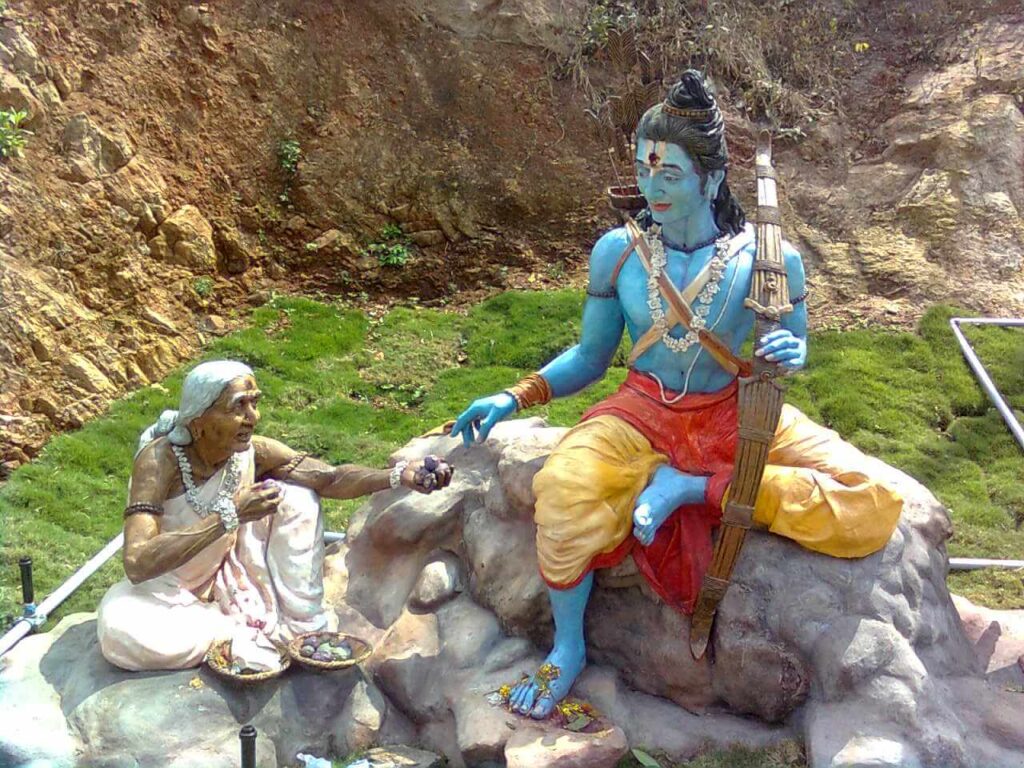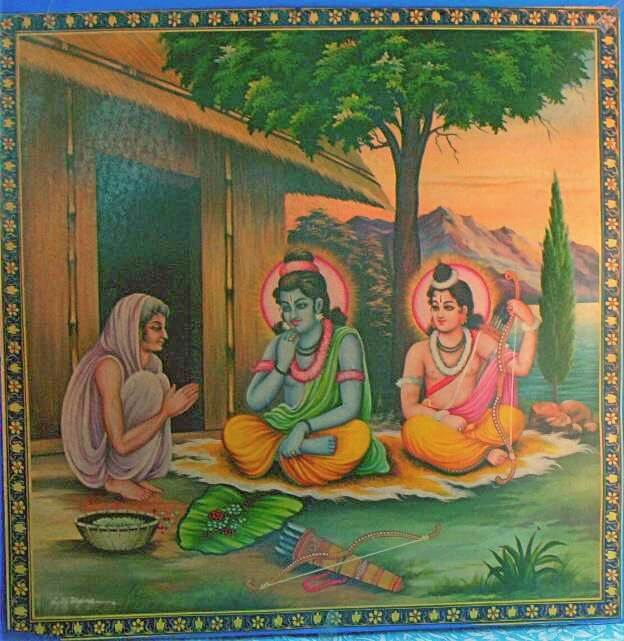God Rama is the most adored character of the epic Ramayana. When Sita was abducted, both Rama and Lakshmana didn’t know who had done such a sinful and heinous action. They searched for Sita but couldn’t get success on the first day. The author of Ramayana, Valmiki Maharshi knew that Goddess Sita was accommodated at Ashokavana of Lanka. Sita was untraceable by Lakshmana, and when Lakshmana was about to feel depressed and Rama was about to be tied with grief, Valmiki Maharshi didn’t like to write such verses, as he thought, those words need not be experienced by his children Lava and Kusha. Here lies the greatest poetic capacity of Valmiki Maharshi. He gradually narrated the events, inserting some top secrets into the scientific approach of thinking, by Rama, and Lakshmana and thus wrote the thoughtful, sensitive events, with agreeable words in verses. The great sage, scribbled in Sanskrit, making it crazier to the children Lava and Kusha or to anybody who happened to read Ramayana in this universe at any time.

These sensitive verses are available in the seventy second sarga of Aranyakanda in the original Valmiki Ramayana. The narration regarding the crazy story, explaining the secrets of such words would be available in the upcoming article titled ‘Ayomukhi and Kabandha in Ramayana‘.
Rama and Lakshmana found Sita untraceable and Lakshmana had put his head down due to depression and God Rama had been arrested with grief but his knowledge was working cautiously. They continued their search, faced the demons, Ayomukhi and Kabandha. The personality of Rama was unique and the enmity of these demons turned into their friendship, thus helped for the search of Sita. They moved towards the river stream Pampa, in the middle of various forest trees which were loaded with various fruits.
तौ पुष्करिण्याःपंपायास्तीरमासाद्य पश्चिमम् । अपश्यतां ततस्तत्र शबर्या रम्यमाश्रमम् ॥
The meaning is: Then they both reached the western side of the Pampa, which was flowing with good water. Then they had seen the beautiful Ashram of Shabari.
Shabari was the daughter of a hunter, the king of that forest. In that forest, Mathanga Rishi had lived, performing penance. When Shabari had grown up, she desired to do penance, and continue to serve the old Rishis of that forest for a long time, until she lived in the forest near Pampa. One day, before the ascent of Mathanga Rishi into heaven, he advised Shabari, to devout Rama and also to continue to help the blind and old people of that area so that they could perform penance happily. She had grown beautiful plants and flowers in the gardens, irrigating with the water of Pampa and Rama was pleased to think of her style of life like a hermit. Rama and Lakshmana observed the area and liked it.
रामेण तापसी पृष्टा सा सिद्धा सिद्धसम्मता । शशंस शबरी वृद्धा रामाय प्रत्युपस्थिता ॥
On hearing the appreciating words of Rama, when he explained her life was like that of Siddha or like a sage in a group of sages who had approved her, very old in age, she requested with him, expressing her desire to enter into that world where the old sages have arisen already. When she had seen Rama in his physical form, she told him that all her wishes were already fulfilled. Her commission to this life was over. He was very much pleased to see her sacrifice, foregoing the pleasures of a hunter’s family life. If she would have married a hunter and enjoyed life, she could be within that society of those hunters in the deep forest, unnoticed by the outside society. Her level of knowledge was above that of an ordinary hunter and living amidst hermits was daily kept within the watch and ward of Dharma and thus Shabari was called as Dharmatma.
एवमुक्तः स धर्मात्मा शबर्या शबरीमिदं । राघवः प्राह विज्ञाने तां नित्यमबहिष्कृतां ॥

Then Rama appreciated her again. He remarked hunters have excluded Shabari from their society. But the scientific knowledge of the learned persons, had never excluded her daily life. She had done her fast daily towards Rama. Her life had reached the highest honorable period, to get his blessings, which caused him wonder and joy.
तमुवाच ततो रामः शबरीं संशित व्रतान् । अर्चितोहं त्वया भद्रे गच्छ कामं यथा सुखं ॥
The meaning is: With her treatment and fast so far done and dedications towards Rama, Shabari was permitted go as a secured soul, where she would feel eternal happiness in future.
Shabari had collected sufficient fruits for the guests. She served them the night’s food and night shelter for them. Shabari literally worshipped them. She sought that place where the souls of the Maharshi people, due to their virtues, are parked by God Rama along with him, on leaving this physical world.
यत्र ते सुकृतात्मनो विहरन्ति महर्षयः । तत्पुण्यं शबरी स्थानं जगामात्म समाधिना ॥
Shabari had seen Rama face to face. Her soul was eligible to get that position, where the holy sages are permanently resting peacefully with Rama in heaven. Rama and Lakshmana had been provided with darbha grass mats inside her hermit, on a higher stage. She also put a separate mat for her Yoga Samadhi on the lower floor. On the following day, early in the morning, along with the sunrise, Rama and Lakshmana, found the holy life of Shabari, rising to heaven, after her chanting Rama mantras, heard melodiously on the higher sky.
It is humbly prayed for the blessings of God Rama upon us.
Next post, being of Sugriva in Ramayana, may not be missed. Ayomukhi and Kabandha in Ramayana would be presented separately in another article.
Readers may provide feedback and share this story with friends and family.

Leave a Reply